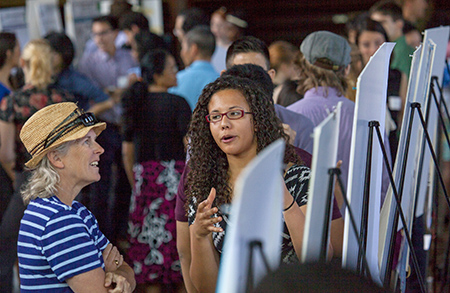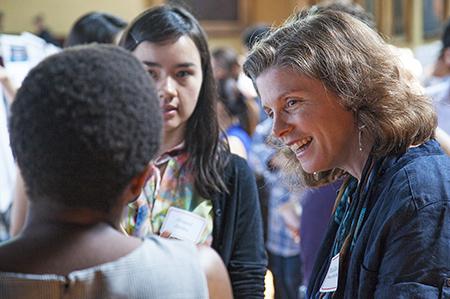PROVIDENCE, R.I. [Brown University] —Hundreds of students from Brown and elsewhere who worked on research projects this summer are showing off their work at the Brown Summer Research Symposium in Sayles Hall. The symposium kicked off today (August 7) with research in the humanities and life sciences, and continues tomorrow with physical and social sciences.
The symposium features around 200 student posters describing research on a wide variety of topics—from an exploration of the philosophy of time to research on the potential toxicity of nanoparticles in the human body. Most of the projects were supported by Brown’s Karen T. Romer Undergraduate Teaching and Research Awards (UTRAs).
“It’s so exciting to see the wide array of projects on display,” said Maud Mandel, dean of the college, in her opening remarks. “Brown prides itself on supporting undergraduate student research. This commitment has been particularly evident this year with President Paxson’s decision to support expanded research opportunities for undergraduate students. Now, UTRA funds about 300 student-faculty research and teaching collaborations each year.”

Brown student Julia Franckh presented her psychology research on the relationship between guilt and self-blame. She was grateful to have a close relationship with professors who helped her every step of the way.
“The professors are incredibly welcoming, intrigued, and really helpful in making sure you study what you want,” she said.
Most of the students who presented are undergraduates at Brown, but about five percent came from other institutions including Tougaloo College, according to Oludurotimi O. Adetunji, associate dean of the college who oversees the symposium.
He expects as many as 500 people to attend at the symposium over two days.

